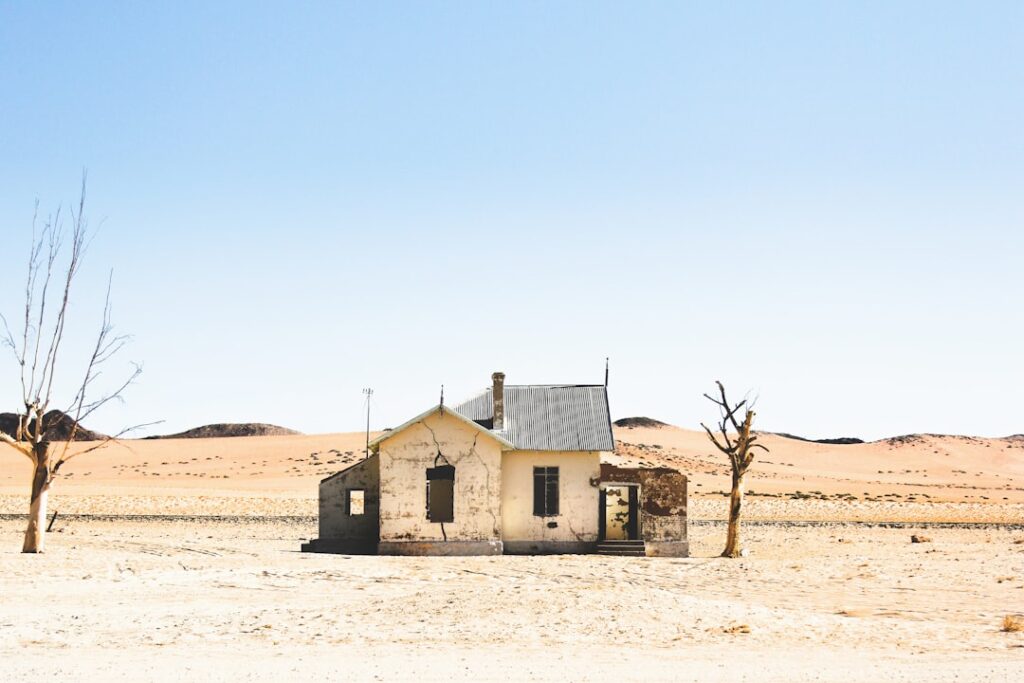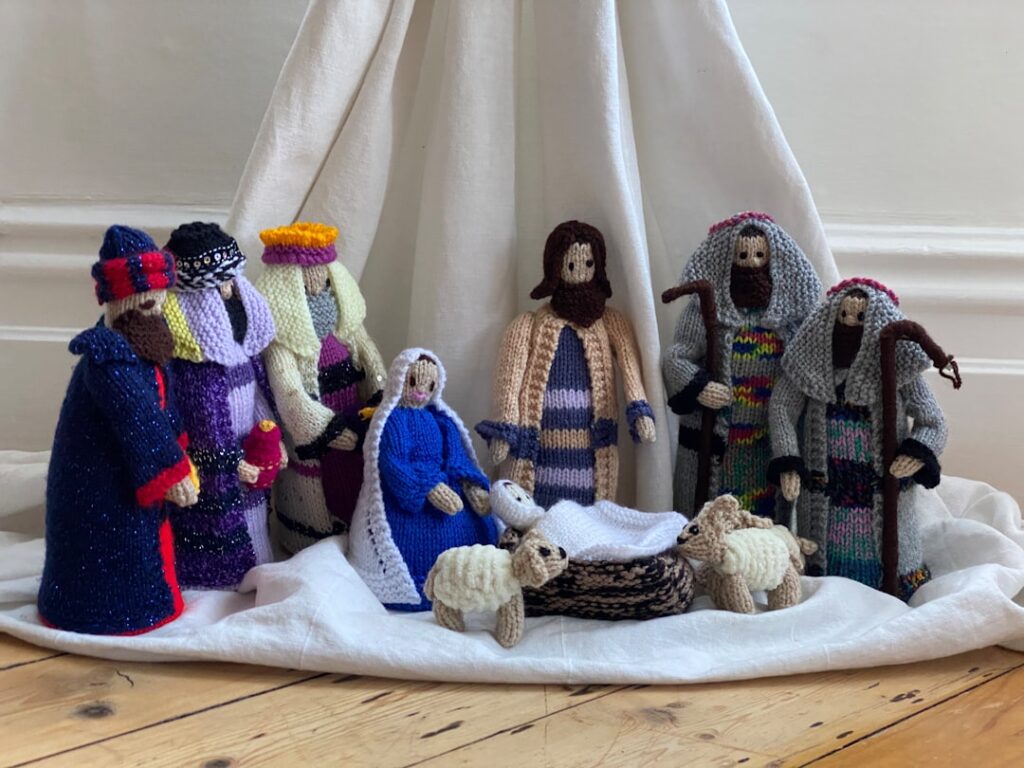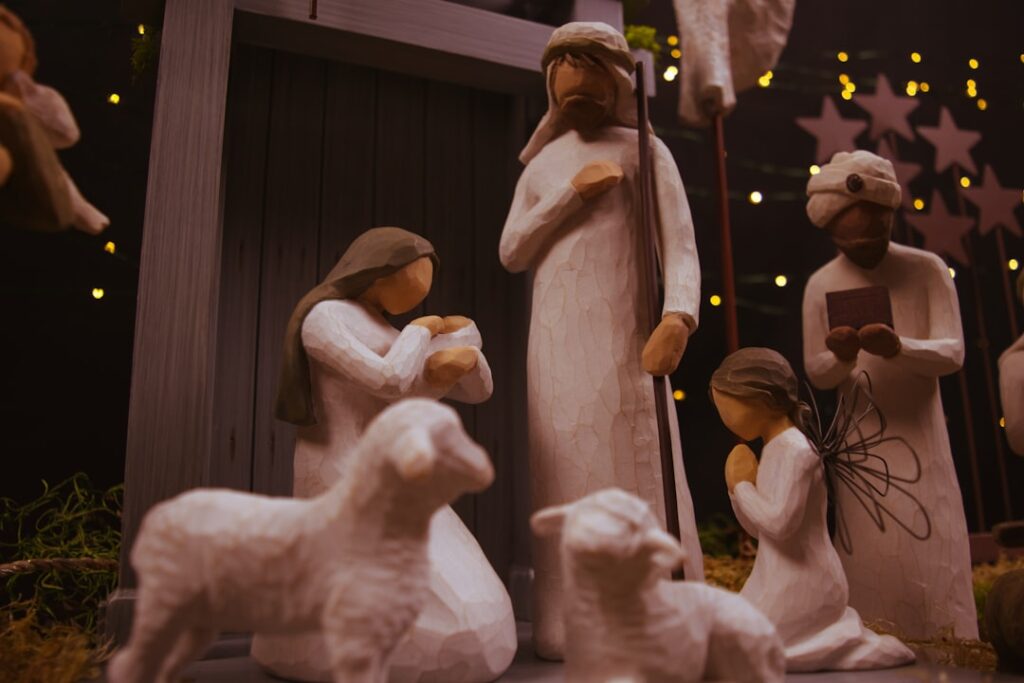
Revival. The word itself crackles with divine energy, doesn’t it?
Revival is God’s great unveiling—a manifestation of the Holy Spirit that strips back the eggshell-thin membrane between heaven and earth and shows us, in vivid clarity, both the glory of God and the utter depth of our need for Him. It’s like standing in a thunderstorm, drenched and trembling, realising that the very elements around you are alive, pulsating with the presence and power of a holy God. Yes, I know – there are better definitions of revival, but I just want to press on and talk about the donkeys…
Christians often like to talk of revival and the times when God has moved powerfully in the nation, showing and displaying His immense power – usually accompanied by healing, signs and wonders. Nothing is more awesome than when God is on the move! The revivalist Smith Wigglesworth’s grandson once prayed for me to see and experience what his grandfather had seen—something I welcomed eagerly, but to be honest, I’m not sure God ever wants to do an encore—He always does something fresh, something new—but I still long for God to answer that prayer! I’m not despising the day of small things, though a revisit would certainly be welcome! In the UK the story of revival among the Welsh miners is formidable, showing how God, by touching just one person, can affect so many—a tremendous encouragement to us all.
The Welsh Revival of 1904–1905 wasn’t merely an event; it was an absolute, life-changing, radical encounter with the God who is a consuming fire. His holiness is so overwhelming that it exposes our sin, leaves us undone, and drives us to our knees. Yet, it is precisely in that place of dread that the gospel shines brightest. The Azusa Street Revival was underway in America at this time too, but closer to home, God was doing some things that impacted nearly everyone who came in contact with it.
Even the coal pit donkeys were not immune to the ripple effects of the awakening. Their peculiar experience in the face of revival serve as a vivid metaphor for what happens when God reveals Himself in holiness and mercy, touching every aspect of life—even the practical and mundane. People change, and the way the hard working miners treated the working beasts changed too!
Revival is not merely an emotional wave or a stirring sermon. It is far more. It’s the in-breaking of God’s kingdom, an encounter with His presence that leaves no one untouched. When God comes in His holiness, a sense of dread descends. Why? Because in His presence, we see ourselves for who and what we truly are. Change is inevitable.
The miners in Wales knew this dread well. When the Spirit of God swept through their chapels and homes, it was as though a great light had pierced the darkness. Their sin, once hidden and excused, was suddenly laid bare. These were men who lived hard lives—gritty, tough, and often profane and their language was laced with curses – their relationships marked by harshness, and their evenings often lost to drink and debauchery. Yet, when the holiness of God was revealed, their old ways could no longer stand – and often, neither could they! The women too, enduring the difficulties of those days, experienced God’s heavy presence, which transformed whole communities.
Perhaps the best commentary on this phenomenon is the prophet Isaiah’s compelling cry: “Woe is me! For I am lost; for I am a man of unclean lips, and I dwell in the midst of a people of unclean lips; for my eyes have seen the King, the Lord of hosts!” (Isaiah 6:5). Isaiah knew the dread of encountering a holy God—the soul-shaking realisation that we have fallen far, far short of His glory, but yet this dread is not the end of the story—it’s the doorway to grace.
In the coal pits of Wales, this grace came absolutely crashing in. As miners fell to their knees in repentance, their lives began to change. They stopped cursing, stopped shouting in anger. Their hearts, once hardened by sin, were softened by the love of Christ. The very furniture of their souls was rearranged.
One of the most amusing details of the revival is how the donkeys struggled because their masters had been transformed. The miners’ new way of speaking—gentle, kind, and free from profanity—was completely foreign to the animals. Commands like “Get up, pull!” without the accompanying expletives were unrecognisable! The creatures that had once laboured under the weight of their masters’ sin now stumbled to adjust to the freedom of grace. Miners, with white tear marks on their coal-dusted cheeks, were a familiar sight as they wrestled with their newfound liberty and friendship with Christ.
This is the gospel in action: when Jesus saves a person, He doesn’t just forgive their sin; He makes them new. “If anyone is in Christ, he is a new creation. The old has passed away; behold, the new has come” (2 Corinthians 5:17).
The miners became living testimonies of this truth, and the donkeys—confused though they were—stood as unlikely witnesses to the power of grace transforming every part of life.
Let’s not rush past the dread of deep conviction, for it is in the depths of that dread that we truly grasp the height of God’s mercy.
Revival often begins with a sharp awareness of personal sin—the moment you realise that all your efforts to be “good enough” have failed, that you stand guilty before a holy God. “All have sinned and fall short of the glory of God” (Romans 3:23).
It’s not just miners or coal pit donkeys who are affected by sin—it’s every one of us. Born into rebellion, dead in our trespasses, we are utterly unable to save ourselves. But here is the good news—the gospel: Jesus Christ, the sinless Son of God, took our sin upon Himself and bore the full weight of God’s wrath on the cross. The holiness that once filled us with dread now becomes the source of our greatest joy. In Christ, God’s justice is satisfied, and His mercy is poured out in abundance.
In Wales, the miners didn’t just feel bad about their sin—that’s never enough. They responded and turned to Jesus. They trusted in the One who died in their place and rose again to give them new life. That’s why their lives changed so dramatically. The gospel wasn’t just an idea to them; it was their lifeline—their only hope.
When revival comes, it doesn’t merely change individuals; it transforms whole communities. The miners’ new way of life rippled out into the chapels, coal pits, homes, and streets. Crime rates plummeted. Families were restored. Marriages reconciled. Even the donkeys felt the impact!
This is what happens when God’s holiness collides with human brokenness—a phenomenon we desperately need today. Revival is a glimpse of what the kingdom of God will one day look like in fullness. On that big, celebration-filled day, every knee will bow, every tongue will confess that Jesus is Lord, and creation, groaning under the weight of sin, will be set free.
Here’s the astounding truth: the holiness of God that once filled us with dread will one day fill us with unending delight. Why? Because in Christ, we are no longer enemies of God but His beloved children, clothed in the righteousness of Jesus Himself.
The question has to be asked – are you in Christ or not? What are you doing about Jesus?
What does this mean for us? First, we must take sin seriously. The same God who revealed Himself in Wales sees every thought and action in our lives. His holiness hasn’t diminished. If we are to pray for revival, we must be prepared for the Spirit to search us, convict us, and bring us to our knees.
We must also cling to the cross – to what God has done for us and in us. The dread of God’s holiness drives us to Jesus, where we find forgiveness, grace, and the power to live transformed lives. Without the cross, revival is mere emotionalism. With the cross, it is the power of God for salvation.
Finally, we must long for more. The Welsh Revival was a foretaste of the great renewal that is to come. While we wait for that day, we are called to live as citizens of God’s kingdom here and now—people who speak with kindness, work with integrity, and point others to the grace that has transformed us.
Let us pray for revival—for holiness, for the grace of God to flood our lives, our communities, and even our “coal pits.” And let us remember that when God moves, it is both terrifying and glorious—a dread that leads to life, a holiness that transforms, and a grace that changes everything.






